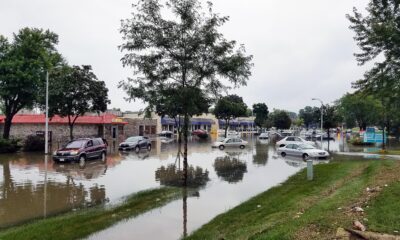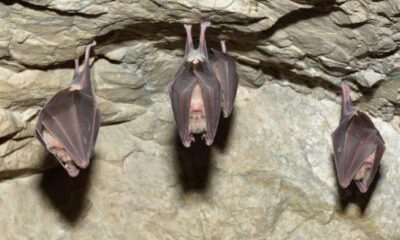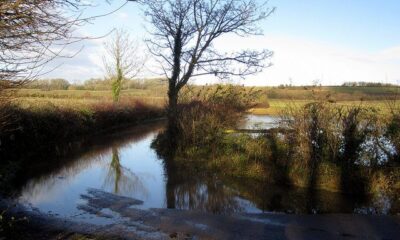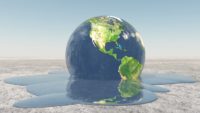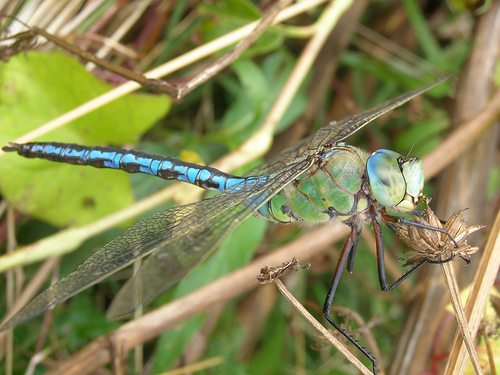

Environment
Conservationists ‘concerned’ with dragonfly numbers after UK floods
Conservationists have said that an extremely wet winter may have impacted on invertebrate numbers, boosting mosquito populations but causing a decline in dragonflies.
The Canal and River Trust has warned that dragonflies and damselflies may begin to dwindle, with rivers spreading across fields over the past few months, leaving larvae as easy prey for small mammals. These insects spend most of their lives as nymphs in waterways.
Peter Birch, group environment manager for the Canal and River Trust, said, “While this year’s floods have had an obvious impact on larger animals, birds and fish, we are also particularly concerned with the impact on invertebrates, which form the foundation stones of a healthy water environment.
“Dragonflies, and their sister damselflies, flourish in clean water which is rich in bankside vegetation, such as reeds. This makes them a fantastic indicator of the health of a canal or river.”
Birch explained that floods and heavy rainfall might have a long-term effect on river invertebrates.
“We would expect to see an increase in numbers of mosquitoes and midges which prefer stagnant and isolated water, but we may also see a drop in the numbers of dragonflies emerging this spring”, he said.
The charity invited members of the public to take part to the Great Nature Watch, recording sightings of wildlife on canals, rivers and lakes.
A number of academics warned in March that as winters are expected to become wetter and wetter in the future, more fertilisers could be washed into waterways, causing algae to grow faster and affecting the wildlife population.
Photo: Tristram Brelstaff via flickr
Further reading:
UK air pollution ‘a major threat to biodiversity’
English grasslands suffering ‘catastrophic decline’
Monmouthshire to plant wild flowers to help bees


 Environment12 months ago
Environment12 months agoAre Polymer Banknotes: an Eco-Friendly Trend or a Groundswell?

 Features11 months ago
Features11 months agoEco-Friendly Cryptocurrencies: Sustainable Investment Choices

 Features12 months ago
Features12 months agoEco-Friendly Crypto Traders Must Find the Right Exchange

 Energy11 months ago
Energy11 months agoThe Growing Role of Solar Panels in Ireland’s Energy Future


